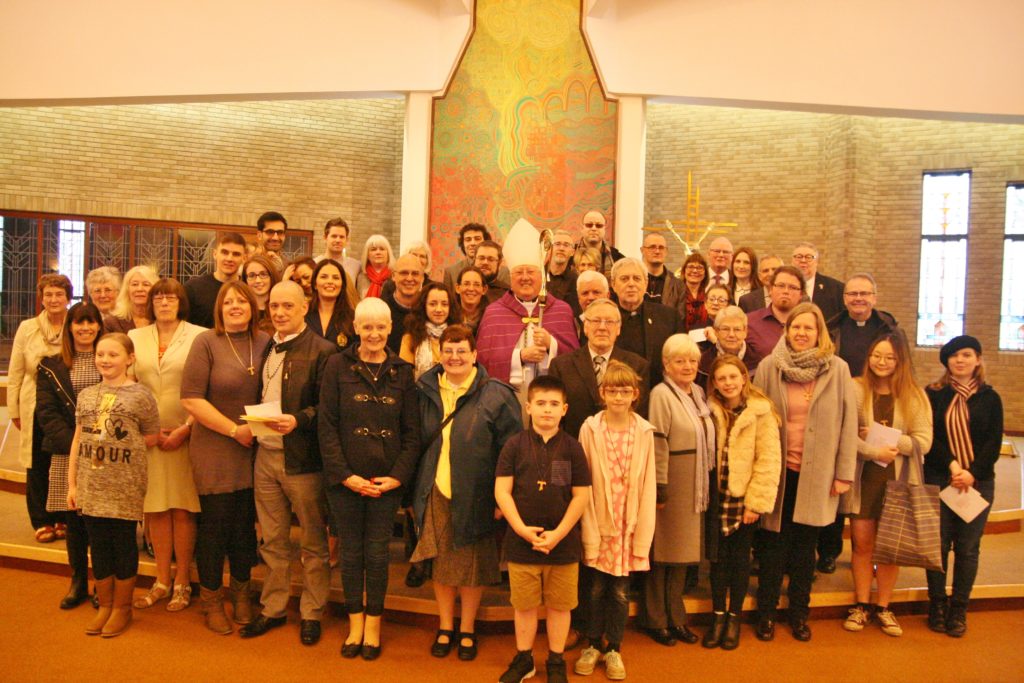
Candidates and catechumens were given a warm welcome as they began the final part of their journey towards being received into full communion with the Catholic Church this Easter.
In his homily at the traditional Rite of Election and Call To Continuing Conversion, which takes place in every cathedral in the world on the first Sunday of Lent, Bishop Terry reminded them that they did not choose Jesus, but Jesus chose them.
The service marked the formal acceptance of people who have been on a journey of faith through the Rite of Christian Initiation of Adults (RCIA) programme.
This year there were 23 candidates, who have already been baptised into other Christian traditions and who will be confirmed and receive holy communion for the first time at the Easter Vigil in their parishes.
There were also nine catechumens, who have not previously been baptised and will receive the sacraments of baptism, confirmation and holy communion during their Vigil celebrations.
The catechumens were called one by one to the sanctuary, where their catechists were asked if they had prayerfully reflected on this next step and affirmed them in their faith journey. Their godparents also came up to the altar. Bishop Terry formally accepted the catechumens and they signed the Book of the Elect.
The candidates remained in their places with their sponsors, who affirmed they had been prayerfully preparing. They do not sign the book as they are already Christians.
“We have a nice additional touch in our diocese where we ask them all to come up to be greeted by the bishop and he gives them a Tau cross as a sign that they are now entering Lent, the period of purification and enlightenment,” says RCIA coordinator Deacon Vince Purcell.
“I would always encourage parishes to get involved in the RCIA. As well as welcoming the candidates and catechumens, it’s important to remember that they are also leading us to a new understanding of our faith.
“Setting up an RCIA group is not an easy thing to do but is extremely rewarding and is part of what we’re called to do as missionary parishes.”
